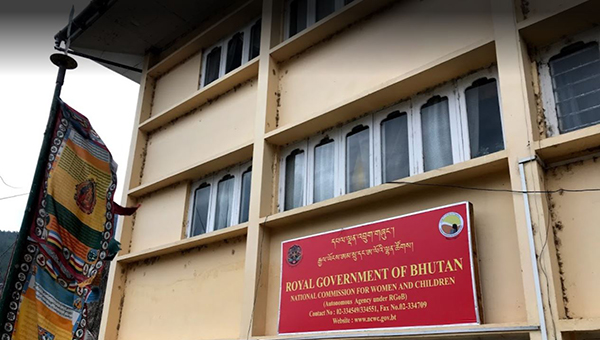 With Coronvirus forcing everyone to stay home, global studies show that situation resulting from lockdown and stay at home directives is increasing the number of domestic violence cases across the globe. In Bhutan, although the number recorded is not as significant, the National Commission for Women and Children (NCWC) and Respect, Educate, Nurture and Empower Women (RENEW) saw a slight increase in the domestic violence cases between February to May this year as compared to the same period last year.
With Coronvirus forcing everyone to stay home, global studies show that situation resulting from lockdown and stay at home directives is increasing the number of domestic violence cases across the globe. In Bhutan, although the number recorded is not as significant, the National Commission for Women and Children (NCWC) and Respect, Educate, Nurture and Empower Women (RENEW) saw a slight increase in the domestic violence cases between February to May this year as compared to the same period last year.
And in order to prevent such cases and to help the victims during this time, the commission in consultation with various stakeholders have developed a contingency plan to prevent domestic violence and to strengthen services for the victims.
The NCWC says that intimate partner violence and child abuse and exploitation are likely to intensify with heightened stress surrounding health, financial worries and confined living situations.
So far, between February to May the Commission recorded 36 cases of domestic violence and women were the victim in all cases. The number is an increase by six compared to 30 such cases recorded for the same period last year. Similarly, the cases of child abuse and exploitation increased by four compared the same period last year. No men reported any such cases so far this year while last year saw two men falling victim to domestic violence.
Ugyen Tshomo, the Chief Programme Officer for Women Division at the NCWC says the number of domestic violence cases can increase because of being together within the four walls for a longer period. “There are various reasons- one could be because they are always together and when they stay together for longer hours there is always a tussle and the tussle can be because we have been instructed to stay home and the major cause can be because of not having adequate resources to run the family which causes stress culminating into violence in the family,” she said.
Similarly, RENEW recorded increased domestic violence cases at 76 between February to April this year against 63 during the same period last year. These are just the reported cases with the NCWC and RENEW and exclusive of records with the Royal Bhutan Police and underreported cases.
The NCWC says that if the situation becomes worse it would force stricter stay at home orders which will make it difficult for women and girls to reach out to resources and people who can help them.
Therefore, the Commission’s contingency plan looks into these aspects and focuses more on advocacy and awareness. The commission extends its services via the toll-free hotline number 1098. The contingency plan also looks at giving virtual training to its protection officers in the dzongkhags and the frontline workers- those working at flu clinic and the Desuups so that they can identify domestic violence cases and refer to relevant agencies.
“The frontline workers who are working in the flu clinic and the Desuups can also have some idea about what is Domestic Violence and where to refer if they come across some people complaining to them. Some people would also start sharing their difficulties at home which the people handling should actually understand and identify and it need not necessarily be women there can be men too,” she added.
Yeshey Lham, the Chief Programme Officer for Children Division at the NCWC says parents should take an extra initiative to safeguard their children especially with regard to online threats. “Children are on the phone most of the time. Predators can have access to those children and especially the vulnerable ones for which there is online grooming which usually takes years but things like this can pick momentum from such situations. So parents need to be aware and should know how to control the time their children spend online or the websites and links that the children should avoid. So advocacy and awareness are most important for such kind of issues. In the messages, we would be informing parents of their role in such circumstances,” she added.
The plan was approved and will be implemented as soon as funding support is mobilised.
United Nations Development Programme (UNDP), United Nations International Children’s Emergency Fund (UNICEF), Japan International Cooperation Agency (JICA) and Save the Children are supporting the Commission financially for the implementation of the plan.
Phub Gyem







